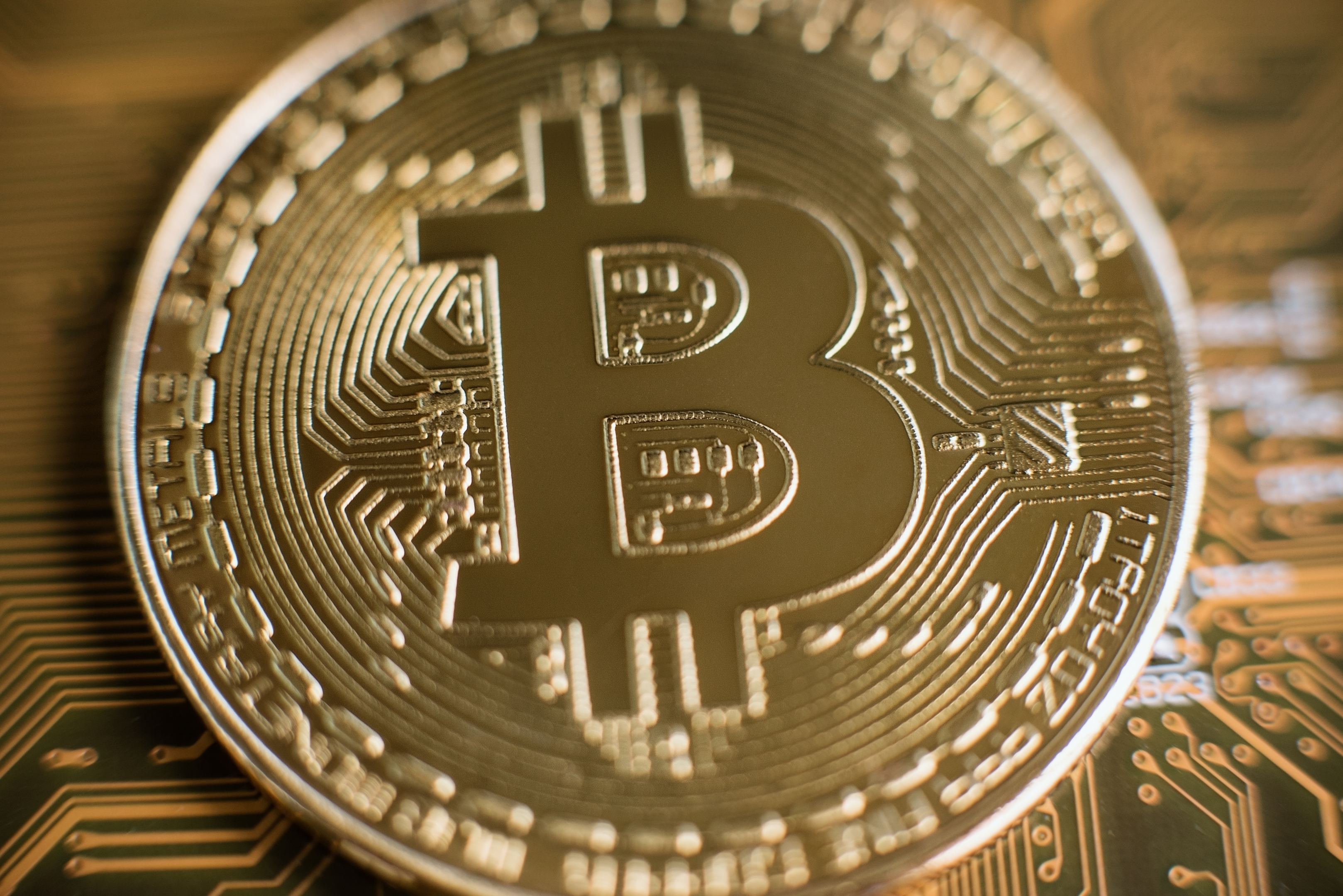So, What is ‘Blockchain’ Anyway?
20/12/2022
Another week, another new technology… or at least that’s how it can feels these days. It can be overwhelming trying to keep up to date with the technological advancements going on out there. Well, we don’t always need to. These advancements don’t always apply to us as individuals or businesses. Sometimes, they have absolutely nothing to do with us.
Then there are those technologies that we probably should try and keep up with, the ones that we hear spoken about more and more on the news. Then, someone brings it up at coffee. Suddenly, a business we purchase from is utilising it or a friend is hounding us to get onto it. Next thing we know we’re being required to engage with it in some form or another due to its newfound necessity. We tried our best to ignore it, but it was just one of those advancements that is too useful for the human race to ignore.
This is what many consider blockchain technologies to be. Blockchain networks will likely play a significant role in the lives of not just a few, but potentially the entire world into the future. Providing more effective ways to validate transactions, record transactions and document timestamps, prevent fraudulent transactions, manage digital assets, and with the growth in cryptocurrencies, blockchain networks are taking the world by storm. So, yes, we probably need to pull our head out of the sand with this one and learn how to answer the question – what is blockchain technology?
How does the blockchain work?
Well, to kick us off, let’s look at the name. The name ‘blockchain’ is not accidental, nor is it some famous founder’s last name. Essentially it can be described as being “chains”. Each block contains information and can be accessed through an internet connection. As new data gets added regularly to the network, the “chain’s” blocks are created and attached to the “chain”.
Now, there are some simple rules about this blockchain… Number 1, copies of the blocks are stored on lots of different computers across the network, so they are never stored all in one place (you might have heard the term decentralized).
Rule number 2, all nodes or “blocks” must update on a ledger to match identical versions across the blockchain whenever something is added or changed. These records on a block are called a ‘cryptographic hash’. This is the reason blockchain has high security. All blocks must verify their legitimacy before adding new data to their ledger.
Typically, in cryptocurrencies, they might include the recording of digital currency transactions. All blocks will update on the ledger and check the legitimacy of the transaction across the chain. Therefore, they are checking whether the transaction in the block was fraudulent or not, providing a very secure system.
Is blockchain safe?
Blockchains are very safe compared to current technologies and can be used to create trust in a variety of ways. Some reasons other than what we’ve already explained are that new blocks are stored sequentially. After adding blocks to end of the blockchain it becomes impossible to return and change their contents without the consent of the network majority.
Another reason is that all changes or additions are timestamped, and these timestamps are cross checked by all the blocks on the chain to easily determine that all changes or additions are sensical in a sequential order. Basically, this prevents anyone going into old records, changing them, and convincing people that they were like that in the first place. Trust us, you don’t wanna try and mess with blockchain security, you won’t stand a chance.
Public blockchain vs private blockchain
There are both public blockchain networks and private blockchains. Using the public blockchain, anyone can access information in the blockchain. Notably, we need to remember that the logger cannot change transactions in the blockchain because no single authority manages the nodes. On the public blockchain network, individuals can only add new information or alterations against old records.
The private blockchain meanwhile is controlled by organizations and groups. On private blockchain networks, only the organisation or group can decide who’s invited and they have power to return and change their blockchain networks, blockchain applications, blockchain data or anything on their blockchain platform. These can be referred to as a permissioned blockchain or a blockchain group.
How is blockchain technology used?
There are many ways in which we might use blockchain technology in place of a traditional database. From financial institutions to individual network participants, blockchain implementation will significantly benefit a range of industries and sectors. We all need to ensure we are storing certain data in effective and safe ways, and distributed ledger technology allows us all to do it better. So, what does blockchain adoption look like?
Banking and finance
Perhaps no other industry has better opportunities with the introduction of blockchain technology than banking. With blockchain based distributed ledgers, you no longer need a intermediary like a bank checking a transaction because it does it on its own. This is why we have typically only been able to make transfers during weekdays.
Usually, if you want to deposit cash on Friday at 8 o’clock you will have to wait until Monday before you get the amount in your account. Even when your money is deposited at a regular bank office the transaction can take between 1-2 days to complete because of an extremely large amount of processing time through the bank.
Blockchain, however, does not go to sleep at night or on the weekend. It runs 24/7, 7 days a week and is so safe that we can trust the blockchain system to check a blockchain transaction automatically. The blockchain eliminates the need for bankers to give up their weekends; we get faster transfers.
Currency… here comes the bitcoin blockchain

Blockchain is the foundation of cryptocurrency such as Bitcoin and Ethereum. Currently, US currency reserves control US currency. Generally, data and currency are technically determined by banks or government agencies under this system. If your account is hacked, your personal data could be hacked. In a case of a bank collapse the customer risks losing the value of all their currency. This is why so often failing banks are partially funded through taxpayer-funded rescue plans. The system needs its money.
These were concerns that started to be addressed when the bitcoin blockchain, and later others like the Ethereum blockchain, were invented. The bitcoin network runs on a blockchain platform and so the ownership of your individual net worth would now lie with you, in your own ‘wallet’. We would no longer need the banks to store our currency because, if you think about it, really all they were doing is keeping it safe, which the blockchain network now does for us. The way we use currency would change drastically.
Public records, like property
If anyone has ever spent any time in your local recording office (where public records like property transactions are stored), you understand how complicated and expensive it is. Today, a physical transaction ledger has to be sent by mail and then deposited in the central database and public index by government employees.
Whenever there is a property dispute, claims must follow a lengthy process to withdraw this information from the public index. Despite its complexity the process is prone to human error, where each inaccurate detail decreases the accuracy of tracking property ownerships. Along comes a smart contract. These are contracts that are stored on the decentralized network and another of the many benefits of blockchain tech.
A smart contract is a software program that enables the creation of a contract with an authorized party using a blockchain. Smart contracts operate on terms agreed by users. Once these conditions are met the agreement will take effect immediately. Let’s say a potential client wanted to rent apartments through smart contracts. The tenant accepts that they will get an apartment number when a security deposit is given. Once these terms are met, the smart contract can automatically execute and make a record on the blockchain network.
So back to our property ownership example, a digital ledger is automatically stored on the blockchain network when a transaction occurs instead of some carrier pigeon flying your physical ledger to the recording office (potentially dropping it on the way). This drastically speeds up the process and reduces chances for human error, thus increasing security.
Voting
Here’s a good one! Blockchains can help facilitate modern voting systems. The use of blockchain technology in election campaigns can be an extremely effective way to reduce election fraud. The use of a blockchain database would make voting almost indestructible as blockchain records can’t be so easily tampered with. Blockchain technology will also help maintain transparent elections and help reduce the number of staff needed for an election. Expect Donald Trump to be a fan… or not?
Healthcare
None of us want people knowing about our varying rashes or itches. Good news is, Blockchain technology will be extremely useful for hospitals and medical records. When medical records are generated and signed, the records will be logged in blockchains, keeping them extremely secure and allowing the patient to prove to authorities it has never been changed or altered if need be. These medical records would only be accessible by certain individuals, thus guaranteeing privacy.
Supply chains
A supplier could also utilize blockchain technology to store data about what materials they’re purchasing and any financial transactions. It could be done so by companies across a business network examining the authenticity of products. As per Forbes reports, food industries already use blockchain systems to monitor food supply throughout their farm-to-use journey.
Pros of the blockchain network

There are countless positives that a blockchain solution holds over traditional business networks. These lie primarily in the safety and efficiency of a distributed database. Below are the many reasons that many companies are now developing a blockchain strategy and labelling themselves “blockchain companies”.
Decentralization
Blockchain is never centralized, so there is no centralized location that is possible to access. In addition to this, the blockchain ledger is copied across multiple networks. These are what make up strict blockchain protocol. Each computer running the blockchain updates their blocks in the blockchain when a new block is added.
This decentralization gives individuals the ability to move away from banks and in a sense manage their own “bank account” that they own and hold. When we conduct transactions of money or a digital asset, it won’t be through a central bank storing data for us, but instead simply between two people as private transactions. Because the transaction data is safely recorded across the entire network, we don’t need banks to ensure there isn’t tampering or illicit transactions.
The finance sector will likely change a lot over the coming years as a result of these big changes in monetary transactions.
Cost reductions
We like this one… more money for you! Typically, consumers pay banks to confirm transactions, notaries to sign documents or priests to marry. Businesses are charged a small fee if they accept payments by credit card because the banking companies are required to process the transactions. Bitcoin, however, lacks the central authority and is subject to limited transaction fees. Thus, blockchain technology removes third-party verification and its associated expenses for payment processing in getting transactions processed.
Accuracy of the chain
A network of millions of servers is authorized for transactions using blockchain. So, there can be no human involvement in the verification process, which leads to fewer human mistakes and accurate records. Even though computers make computational mistakes, the errors will not affect the whole system because the entire blockchain will check itself for accuracy and a mistake will be corrected. It would be difficult for an error to spread across the network, let alone even 5% of the computer network on a blockchain platform.
Why is blockchain important?

Traditional data base technology presents challenges to recording transactions. These involve human error, lack of security, certain operating times, additional resources and higher costs. To ensure that all these are avoided we require big companies to act as intermediaries to manage our transactions and legal contracts.
No need for intermediaries
With smart contracts on a public or private blockchain network, two parties can confirm something without the help of an intermediary. There is more time and money available for individuals and companies alike. It can bring a new generation of internet applications and boost economic growth by enabling a new economy of growth and employment.
Power to the people
The power of a distributed ledger on a decentralized platform lies with the people. No longer will someone need to hold our money for us. No longer will the government need to store our private information for us. Less and less will we be asking anyone to handle sensitive matters for us. Blockchain technology makes much of the know-how of bankers and governments redundant.
Now that you know what the blockchain network is, are you ready for it?





